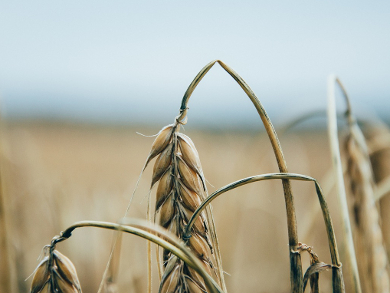The world’s ever rising population puts enormous pressure on food production, while climate change causes many adverse weather events that can negatively affect crop yields and quality. Wheat provides approximately 20 % of total human calorie consumption, and is the most widely grown crop by area in Europe. It is also quite sensitive to weather influences, and production can be affected by both high temperatures and severe frosts, as well as by droughts and water-logged fields.
Miroslav Trnka, Mendel University, Brno, Czech Republic, and colleagues have performed an analysis using several different climate models to predict the probability of adverse weather events that can reduce wheat harvests. The team focused on Europe, as it is the most important area for growing wheat.
The results indicate that the risk of extreme weather conditions will increase by a factor of two in the key wheat-growing areas by the end of the century, but even more if all usable land in Europe is considered. Thus, relocating is not a viable option to sustain or even improve production of the cereal. Other methods need to be found, such as using variants that mature earlier or later in the year, or breeding wheat that is more resistant to heat and drought.
- Adaptation options for wheat in Europe will be limited by increased adverse weather events under climate change,
M. Trnka, P. Hlavinka, M. A. Semenov,
J. R. Soc. Interface 2015, 12, 20150721.
DOI: 10.1098/rsif.2015.0721
Also of Interest
- Climate Change: A Crop Protection Challenge – Interview with D. Gustafson,
Vera Köster,
ChemViews Mag. 2011.
DOI: 10.1002/chemv.201000106
Dave Gustafson, Senior Fellow, Monsanto Company, discusses climate change and its impact on crop production




